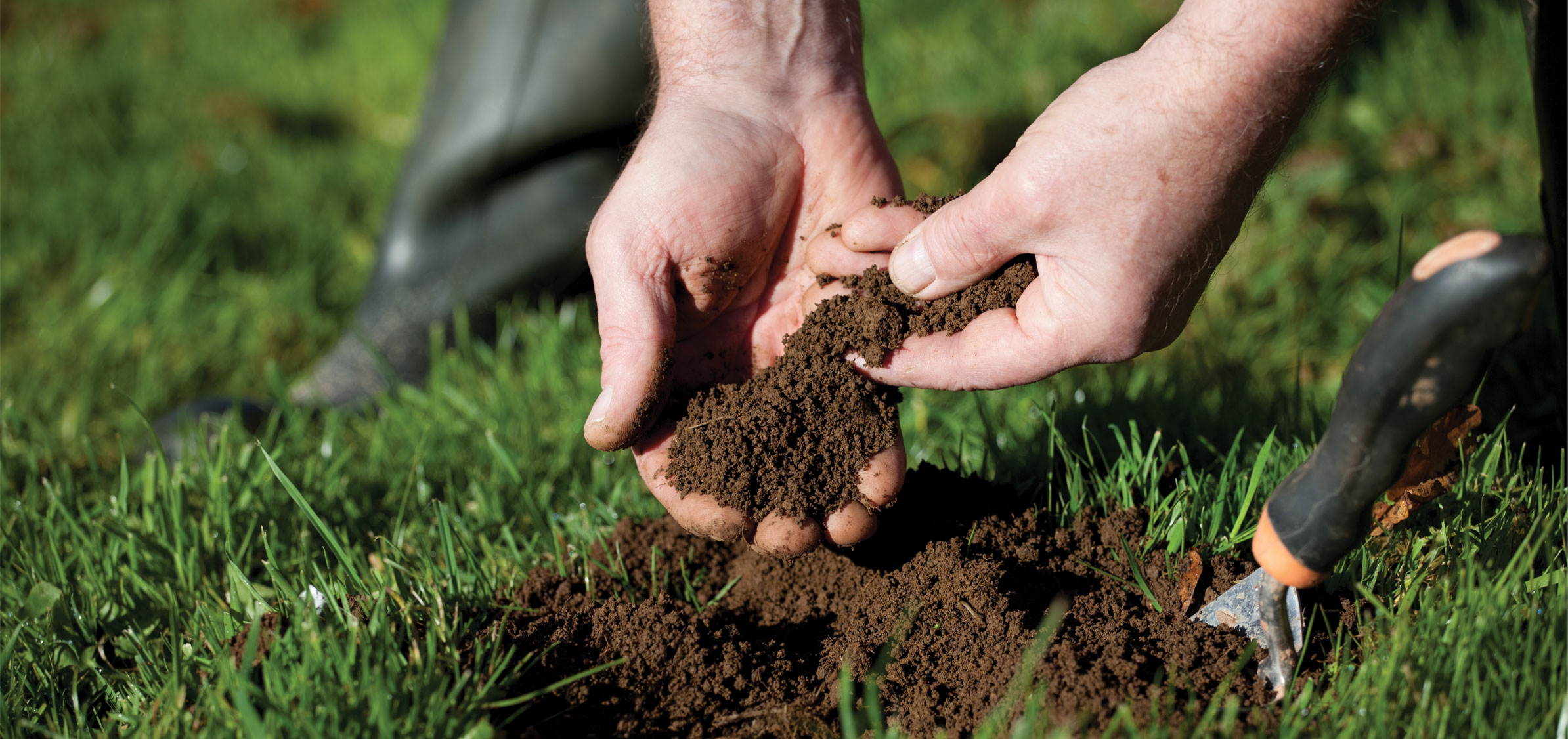
Detonation ROI Starts with Soil Health & Sustainability
Conventional crop management has primarily utilized tillage to prepare the soil for planting and chemical inputs to manage nutrient and pest problems. These methods have been effective for the past century. Now there is an increasing global demand for food and fiber which is providing pressure to increase production. However conventional cultivation methods are no longer sustainable to meet this growing need. The new frontier in crop management involves repairing and restoring soil health. Today growers are more aware of these issues and are adopting innovative practices like reduced tillage, using cover crops to restore organic matter, and adding biological additives to enhance soil health. Detonation is a research-tested microbial package designed to restore life and microbial balance to the soil.
What is Detonation?
Detonation is a family of soil microbes that revitalizes soils damaged by years of traditional farming practices, including tillage and chemical inputs. Detonation provides several key benefits:
Nutrient Availability and Efficiency:
It colonizes a wide range of beneficial microbes that enhance nutrient availability and efficiency.
Rooting and Growth:
It promotes early rooting and growth, leading to increased yields.
Soil Aggregation:
It enhances soil aggregation, increasing water infiltration and reducing soil erosion.
Why Detonation?
Detonation helps restore the microbial balance crucial for soil health, which has been disrupted by traditional crop management practices. The loss of soil microbial life has hidden costs, reducing the efficiency and effectiveness of fertilizers and pest control products. Detonation complements tillage and pest management by acting as a living immune system for the soil, a critical but often misunderstood aspect of crop management.
Detonation ROI Benefits
Detonation is a multifaceted biological delivery system that repairs soil microbial health. Evaluating its cost-effectiveness using traditional metrics like yield alone is insufficient, as soil health is a complex issue that takes time to address. Detonation offers several performance metrics that highlight both short-term economic results and long-term sustainable soil health benefits.

Detonation Performance Metrics
Detonation delivers several performance metrics to measure its benefits:
Increased Crop Yield:
Research across various crops shows that the cost of Detonation is offset by increased yields.
Promoted Rooting and Growth:
Detonation promotes germination and early rooting. The microbes colonize the root system, enhancing plant growth and resulting in healthier crops with fewer agronomic issues.
Optimized Nutrient Availability:
The microbial package in Detonation helps deliver and release nutrients to treated crops. Tissue tests show that essential nutrient levels in plants are optimal for growth.
Enhanced Water Infiltration:
Detonation-treated soils have improved microbial populations that enhance soil aggregation, leading to better water infiltration and soil structure.
Reduced Soil Erosion:
Improved soil aggregation and structure from Detonation treatment reduce surface water runoff, a major factor in soil erosion.
Detonation addresses the root causes of soil health and crop performance. It is a sustainable biological tool that complements traditional crop management practices. When used consistently, Detonation delivers outstanding results year after year, restoring soil health and improving crop performance for future generations.

PROBIOTIC BENEFITS
SANCTUARY PROBIOTIC OVERVIEW
GENUS: BACILLUS (BACTERIA)
Bacillus Subtilis
- Endospore forming bacteria (extremely hardy organisms)
- Grow on many carbon and nitrogen substrates (versatile metabolisms)
- Produce large colonies in soil profile over time (prolific)
- Produce plant growth regulatory compounds (PGR) which stimulate plant growth
- Produces numerous enzymes & organic acids (promotes nutrient cycling, nutrient solubilization & nutrient mineralization, including phosphorous)
- Produce polysaccharides which creates micro-aggregates in soil profile (enhances soil structure)
- Contains select strains capable of stimulating Induced Systemic Resistance (ISR)
- Provides increased resistance to abiotic stress (heat, cold, drought, foot traffic)
- Contains select strains capable of enhancing photosynthetic capacity of plants
Bacillus Firmus
- Endospore forming bacteria (extremely hardy organisms)
- Grow on many carbon and nitrogen substrates (versatile metabolisms)
- Produce large colonies in soil profile over time (prolific)
- Produce plant growth regulatory compounds (PGR) which stimulate plant growth
- Produces numerous enzymes & organic acids (promotes nutrient cycling, nutrient solubilization & nutrient mineralization, including phosphorous)
- Produce polysaccharides which creates micro-aggregates in soil profile (enhances soil structure)
- Contains select strains capable of stimulating Induced Systemic Resistance (ISR)
- Provides increased resistance to abiotic stress (heat, cold, drought, foot traffic)
- Contains select strains capable of enhancing photosynthetic capacity of plants

Bacillus Amyloliquefaceins
- Endospore forming bacteria (extremely hardy organisms)
- Grow on many carbon and nitrogen substrates (versatile metabolisms)
- Produce large colonies in soil profile over time (prolific)
- Produce plant growth regulatory compounds (PGR) which stimulate plant growth
- Produces numerous enzymes & organic acids (promotes nutrient cycling, nutrient solubilization & nutrient mineralization, including phosphorous)
- Produce polysaccharides which creates micro-aggregates in soil profile (enhances soil structure)
- Contains select strains capable of stimulating Induced Systemic Resistance (ISR)
- Provides increased resistance to abiotic stress (heat, cold, drought, foot traffic)
- Contains select strains capable of enhancing photosynthetic capacity of plants
Bacillus Licheniformis
- Endospore forming bacteria (extremely hardy organisms)
- Grow on many carbon and nitrogen substrates (versatile metabolisms)
- Produce large colonies in soil profile over time (prolific)
- Produce plant growth regulatory compounds (PGR) which stimulate plant growth
- Produces numerous enzymes & organic acids (promotes nutrient cycling, nutrient solubilization & nutrient mineralization, including phosphorous)
- Produce polysaccharides which creates micro-aggregates in soil profile (enhances soil structure)
- Contains select strains capable of stimulating Induced Systemic Resistance (ISR)
- Contains select strains capable of enhancing photosynthetic capacity of plants
Bacillus Pumilus
- Endospore forming bacteria (extremely hardy organisms)
- Grow on many carbon and nitrogen substrates (versatile metabolisms)
- Produce large colonies in soil profile over time (prolific)
- Produce plant growth regulatory compounds (PGR) which stimulate plant growth
- Produces numerous enzymes & organic acids (promotes nutrient cycling, nutrient solubilization & nutrient mineralization, including phosphorous) Prolific protease & amylase producer
- Produce polysaccharides which creates micro-aggregates in soil profile (enhances soil structure)
- Contains select strains capable of stimulating Induced Systemic Resistance (ISR)
- Contains select strains capable of enhancing photosynthetic capacity of plants
Paenibacillus Durum (formerly Bacillus Azotofixans)
- Endospore forming bacteria (extremely hardy organisms)
- Grow on many carbon and nitrogen substrates (versatile metabolisms)
- Produce large colonies in soil profile over time (prolific)
- Free living nitrogen fixing organisms (convert atmospheric N2 >> into plant available NH3)
- Produce plant growth regulatory compounds (PGR) which stimulate plant growth
- Produces numerous enzymes & organic acids (promotes nutrient cycling, nutrient solubilization & nutrient mineralization, including phosphorous)
- Produce polysaccharides which creates micro-aggregates in soil profile (enhances soil structure)
- Contains select strains capable of stimulating Induced Systemic Resistance (ISR)
Paenibacillus Polymyxa (formerly Bacillus Polymyxa)
- Endospore forming bacteria (extremely hardy organisms)
- Grow on many carbon and nitrogen substrates (versatile metabolisms)
- Produce large colonies in soil profile over time (prolific)
- Produce extra-cellular polysaccharides (important for soil structure)
- Free living nitrogen fixing organisms (convert atmospheric N2 >>> into plant available NH3)
- Produce plant growth regulatory compounds (PGR) which stimulate plant growth
- Produces numerous enzymes & organic acids (promotes nutrient cycling, nutrient solubilization & nutrient mineralization, including phosphorous)
- Produce polysaccharides which creates micro-aggregates in soil profile (enhances soil structure)
- Contains select strains capable of stimulating Induced Systemic Resistance (ISR)
- Provides increased resistance to abiotic stress (heat, cold, drought, foot traffic)
GENUS: STREPTOMYCES (ACTINOMYCETES)
Streptomyces Griseus
- Filamentous spore formers
- Prolific enzyme producer (promotes nutrient cycling)
- Produce plant growth promoting compounds (PGR) which stimulate plant growth
- Contains select strains capable of stimulating Induced Systemic Resistance (ISR)
- Provides increased resistance to abiotic stress (heat, cold, drought, foot traffic)
Streptomyces Lydicus
- Filamentous spore formers
- Prolific enzyme producer (promotes nutrient cycling)
- Produce plant growth promoting compounds (PGR) which stimulate plant growth
- Contains select strains capable of stimulating Induced Systemic Resistance (ISR)
- Provides increased resistance to abiotic stress (heat, cold, drought, foot traffic)
GENUS: TRICHODERMA (FUNGI)
Trichoderma Harzianum
- Filamentous rhizobial soil fungi
- Extremely efficient at producing the enzyme cellulase (contributes to nutrient cycling)
- Provides increased resistance to abiotic stress (heat, cold, drought, foot traffic)
- Solubilizes phosphorous in the soil
Trichoderma Reesei
- Filamentous rhizobial soil fungi
- Extremely efficient at producing the enzyme cellulase (contributes to nutrient cycling)
- Provides increased resistance to abiotic stress (heat, cold, drought, foot traffic)
- Solubilizes phosphorous in the soil

MICROBIAL SYNERGISTS
Dextrose: microbial food source, supplements plants increased sugar requirement during flowering phase
Sucrose: microbial food source, supplements plants increased sugar requirement during flowering phase
Maltodextrin: microbial food source, supplements plants increased sugar requirement during flowering phase
L – Amino Acids: utilized by beneficial organisms to drive metabolic function. Contains high levels of L-Cystene, L-Glycine, L-Glutamate to facilitate the production of Glutathione a potent abiotic stress reducer. Additionally it contains high levels of L – Tryptophan to facilitate production of Indole Acetic Acid (IAA), a natural phyto-hormone responsible for triggering flowering mechanism
Brewers Yeast Extract: rich in vitamins & minerals essential for microbial growth and proliferation during the critical early stage of inoculation
Potassium Humate: recalcitrant carbon source specifically designed to feed beneficial soil fungi.
Kelp (Seaweed Extract): rich in alginates, amino acids, minerals and vitamins, which promote microbial growth & proliferation.
